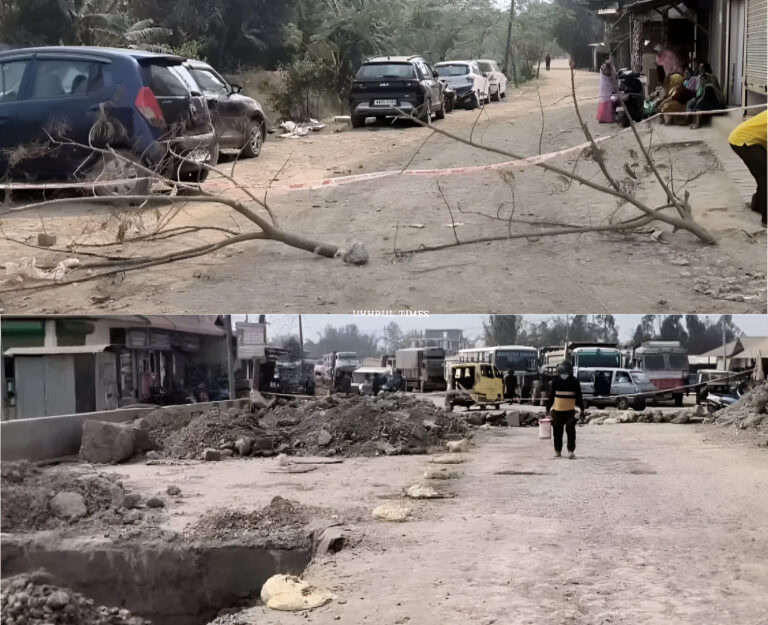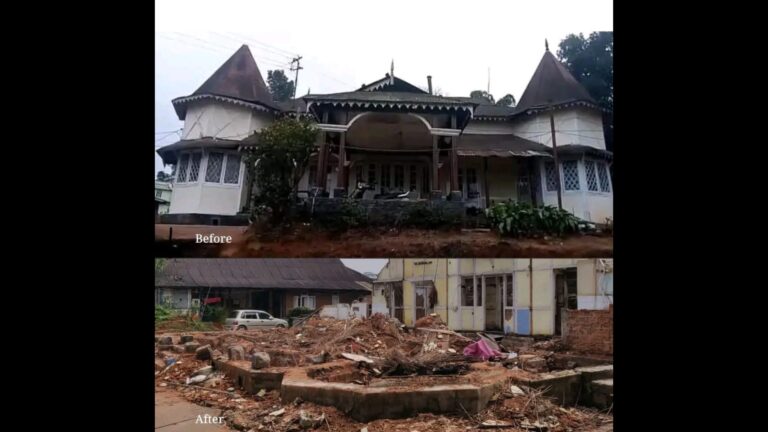CM Biren Attends 72nd Plenary Session of North East Council, Hails Visionary Leadership of Amit Shah, PM Modi
On December 21, 2024, Manipur Chief Minister N. Biren Singh participated in the 72nd Plenary Session of the North East Council (NEC) in Agartala. He praised the visionary leadership of Union Home Minister Amit Shah and Prime Minister Narendra Modi, highlighting their transformative “Act East, Act Fast, Act First” policy, which has been instrumental in driving growth, connectivity, and empowerment across the Northeast region.
Introduction
The North East Council (NEC) serves as a pivotal platform for fostering development and collaboration among the northeastern states of India. Established in 1971, the NEC has been instrumental in addressing the unique challenges and harnessing the potential of this diverse region. The 72nd Plenary Session, held in Agartala, brought together key stakeholders to deliberate on the future trajectory of the Northeast.
The Significance of the 72nd Plenary Session
The 72nd Plenary Session of the NEC was a convergence of ideas, strategies, and commitments aimed at propelling the Northeast towards a brighter future. Chaired by Union Home Minister Amit Shah, the session underscored the central government’s dedication to the region’s development. The presence of Civil Aviation Minister Jyotiraditya M. Scindia further emphasized the focus on enhancing connectivity, a critical component for the region’s growth.
Chief Minister N. Biren Singh’s Participation
Manipur’s Chief Minister, N. Biren Singh, expressed his honor in attending the session. He highlighted the collaborative efforts aimed at ensuring a brighter and more secure future for the region. Taking to social media, he stated, “I am confident that the discussions and resolutions from this plenary will pave the way for enhanced cooperation and progress, ensuring a brighter future for the people of the entire Northeast.”
The “Act East, Act Fast, Act First” Policy
The “Act East” policy, reimagined as “Act East, Act Fast, Act First” under Prime Minister Narendra Modi’s leadership, has been a transformative approach for the Northeast. This policy emphasizes proactive engagement with Southeast Asian countries, positioning the Northeast as a gateway for economic and cultural exchange. The focus on rapid development and prioritization of the region has led to significant improvements in infrastructure, connectivity, and socio-economic indicators.
Achievements Under the Policy
- Infrastructure Development: The Northeast has witnessed substantial investments in road, rail, and air connectivity. Projects like the Bogibeel Bridge in Assam and the expansion of regional airports have enhanced accessibility.
- Economic Growth: Special economic zones and industrial corridors have been established to boost local industries and create employment opportunities.
- Cultural Integration: Initiatives promoting the rich cultural heritage of the Northeast have been launched, fostering national integration and tourism.
Challenges and the Way Forward
Despite the progress, challenges such as insurgency, ethnic conflicts, and infrastructural bottlenecks persist. The NEC’s role in addressing these issues through coordinated efforts is crucial. The 72nd Plenary Session provided a platform to discuss these challenges and devise strategies for sustainable development.
Conclusion
The 72nd Plenary Session of the North East Council marked a significant milestone in the journey towards the holistic development of the northeastern region. Under the visionary leadership of Union Home Minister Amit Shah and Prime Minister Narendra Modi, and with active participation from leaders like Chief Minister N. Biren Singh, the Northeast is poised to become a hub of growth, connectivity, and cultural integration.
FAQs
- What is the North East Council (NEC)?
- The NEC is a regional planning body established in 1971 to promote economic and social development in the northeastern states of India.
- What is the “Act East” policy?
- The “Act East” policy is an initiative by the Indian government to strengthen ties with Southeast Asian countries, with the Northeast region serving as a strategic gateway.
- Who attended the 72nd Plenary Session of the NEC?
- The session was attended by Union Home Minister Amit Shah, Civil Aviation Minister Jyotiraditya M. Scindia, Chief Ministers of northeastern states, including Manipur’s N. Biren Singh, and other key stakeholders.
- What are the main achievements of the “Act East, Act Fast, Act First” policy in the Northeast?
- The policy has led to significant infrastructure development, economic growth, and cultural integration in the northeastern region.
- What challenges does the Northeast region still face?
- The region continues to grapple with issues like insurgency, ethnic conflicts, and infrastructural bottlenecks that require coordinated efforts to resolve.


